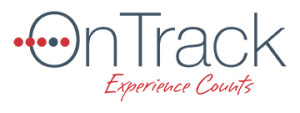Bachelor of Science for Organizational Leadership and Learning in Healthcare Leadership Rewards “On the Job” Knowledge—In a Flexible Online Format
The University of Louisville, the state-supported research university located in Kentucky’s largest metropolitan area, is proud to introduce a competency-based education (CBE) program for experienced, knowledgeable healthcare professionals seeking to complete a bachelor’s degree in healthcare management.
The Bachelor of Science for Organizational Leadership and Learning is focused on Healthcare Leadership and allows students of all ages to achieve their academic, professional and personal goals through a quality online education program. The program itself is designed to be as flexible and convenient as possible, including offering a wide variety of online courses, flexible start dates and coursework that can be completed based on the student’s work schedule.

Degree Recognizes Knowledge and Rewards Experience
Most significantly, the Bachelor of Science for Organizational Leadership and Learning in Healthcare Leadership is delivered through an innovative method of competency-based education (CBE), allowing healthcare professionals to capitalize on their existing knowledge and experience and earn a bachelor’s degree at their own pace.
“The program encourages adult learners to enhance their skills in leadership, organizational change, business planning, workplace development and performance,” says Dr. Lee Bewley, the program’s director. “Through this program, students can attain higher-level leadership positions in healthcare management in their own organization or within the industry at the clinic, service, or department level across all types of healthcare organizations and systems.”
“The program is ideal for professionals who are experienced in their healthcare field, but are missing the proper credentials that could help them secure promotions, increase their pay or accept new management and leadership roles,” he adds.
Structure and Delivery Tailored to Work/Life Balance
The program curriculum was designed to address the needs of healthcare professionals who are tapped to play a more complex role in the healthcare organizations of the future, as traditional roles in supervision, management and leadership are becoming larger and more strategic in scope. More than ever before, mid-level professionals are being asked to develop a broader set of leadership and technical skills and increase their understanding of healthcare delivery and support.
The bachelor’s degree was developed to balance career goals and lifestyle. The structure allows students to capitalize on their existing knowledge and experience, while earning a bachelor’s degree at their own pace—with eleven flexible start dates throughout the year.
The first major course, a Prior Learning Assessment, allows students to earn up to 48 credit hours by documenting their learning from work experiences, existing course credits or associate degrees and technical/specialized healthcare training. These 48 credit hours, the equivalent of 16 courses, are recognized at no additional cost to the student.
The entire degree program requires a minimum of 123 credit hours, which include the major concentration, general education required courses, elective courses and work specialization. Notably, it also offers an ideal launch platform for further education within a graduate healthcare management program as the curriculum is based on the National Center for Healthcare Leadership competency model which has also been adopted by many top-tier MHA programs in the country. Tuition and financial assistance may be available for students who qualify.
First Degree in UofL’s New OnTrack Program
This program is the first offered through UofL’s OnTrack program , the first of its kind in the state and region, with a curriculum based on the National Center for Healthcare Leadership’s (NCHL.org) competency model, one of the leading industry standard models for healthcare executive competencies development.
, the first of its kind in the state and region, with a curriculum based on the National Center for Healthcare Leadership’s (NCHL.org) competency model, one of the leading industry standard models for healthcare executive competencies development.
This program also represents a significant step for the university. As a member of Kentucky Commonwealth College, the University of Louisville joins other institutions in the Competency-Based Education Network, a national consortium of colleges and universities that collaborate in the design, development and scaling of competency-based degree programs. The network represents 34 institutions and public systems—82 campuses in all.
“UofL is honored to join our fellow institutions in delivering an education model like this, one that offers students more flexibility than traditional classes,” says Dr. Bewley. “This is a significant step for us, and a very beneficial program for adult learners looking to enhance their career development in the healthcare field by earning a bachelor’s degree from the University of Louisville, a high-quality, nationally-recognized educational institution.”
To learn more about the Healthcare Leadership track in the Bachelor of Science for Organizational Leadership and Learning, visit the UofL Online Learning website.
 The University of Louisville is proud to introduce a new online teaching endorsement in English as a Second Language (ESL) for Kentucky certified teachers.
The University of Louisville is proud to introduce a new online teaching endorsement in English as a Second Language (ESL) for Kentucky certified teachers.


